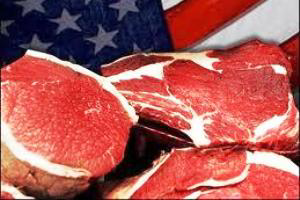South Korea plans to sell Zilmax in 2014

South Korea intends to end its ban on the feed additive zilpaterol in early 2014, according to a senior food ministry official. This means opening the door to beef imports containing this growth enhancer. The state already has a zero tolerance policy and after finding traces, banned two US beef shipments.
Son Seong-wan, director of livestock products standard division at South Korea’s food ministry, said in an interview that the government’s risk assessment found the feed additive could be permitted at certain levels. The feed additive has been under global scrutiny since a video emerged in the United States in August showing animals struggling to walk and with other signs of distress after taking a growth drug.
Merck & Co produces Zilmax, which contains zilpaterol and was approved by the U.S. Food and Drug Administration in 2006, and South Korea’s move could open the door for its sale from early next year, Son said. The South Korean assessment was done at the request of Merck’s subsidiary MSD Animal Health Korea. An official from the local unit said it had been put in the request in June last year.
He declined to specify what level would be permitted, but said the food ministry was awaiting international recommendations on zilpaterol due to be released by a Joint FAO/WHO Expert Committee on Food Additives (JECFA) next month.
Son and an official at MSD Animal Health Korea said the United States tolerated 12 parts per billion (ppb) of zilpaterol in beef liver, while Japan allowed 10 ppb in beef muscle. Merck said on Tuesday it planned to resume sales of Zilmax in the United States and Canada after it completes an audit of how the product is used.1
Merck had halted sales of the muscle-building drug in August after Tyson Foods said it would stop accepting Zilmax-fed beef given some cattle were observed arriving for slaughter with signs they were having difficulty walking or moving. Merck has said it stands behind the safety of its product, but the pause added to global concerns over its use.
But Cargill one of the world’s largest beef processors, said on Wednesday it would not accept Zilmax-fed beef into the Cargill supply chain “until we are 100% confident the animal welfare issues are resolved.” Cargill said its ban on Zilmax applies both to beef it processes, as well as to cattle in its own feed lots. In addition, Cargill said it will not use Zilmax-fed beef “until Asia and other trading partners accept it in their markets.”
Merck did not immediately respond to a request for comment on Cargill’s action.
Reuters











